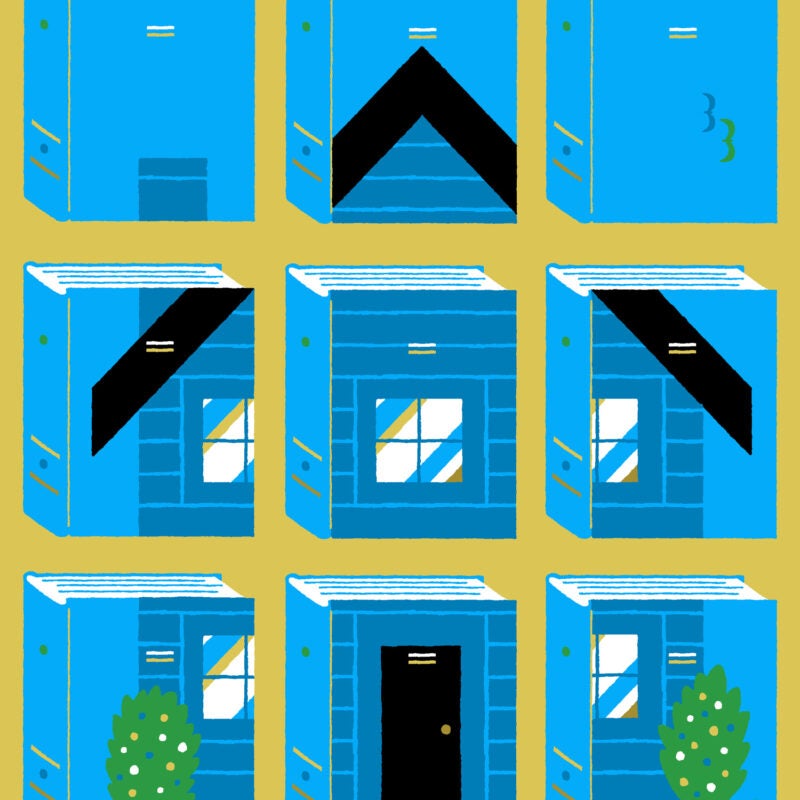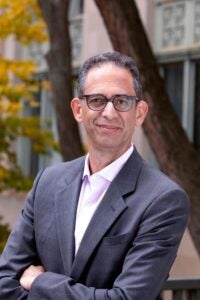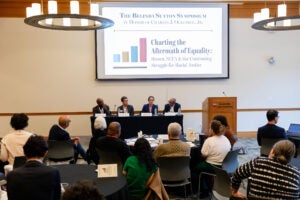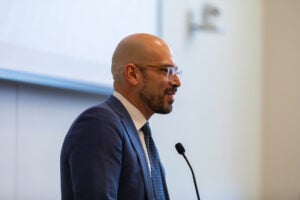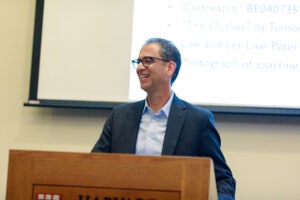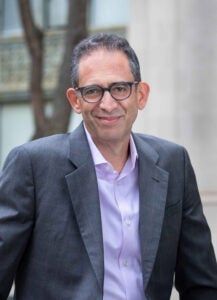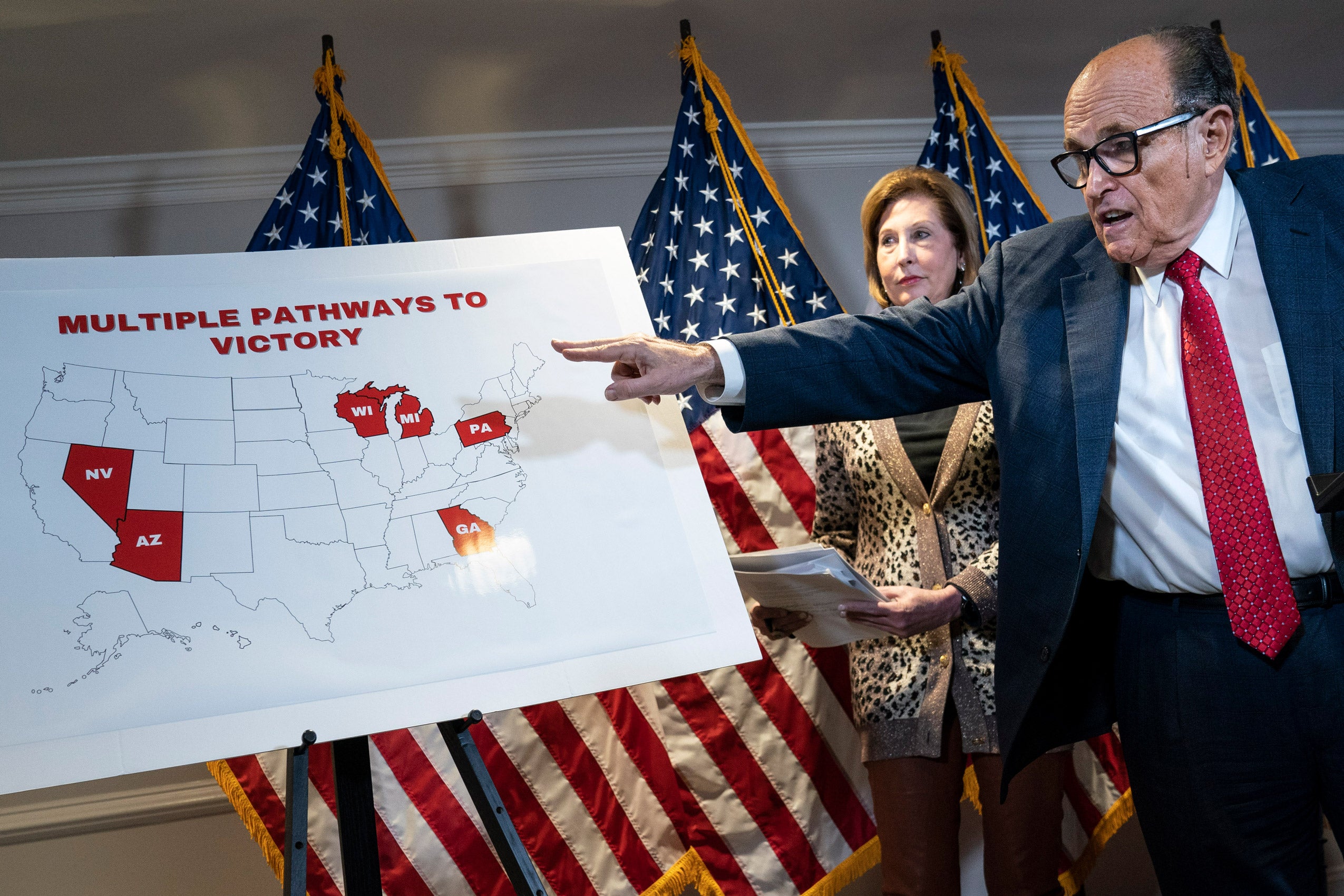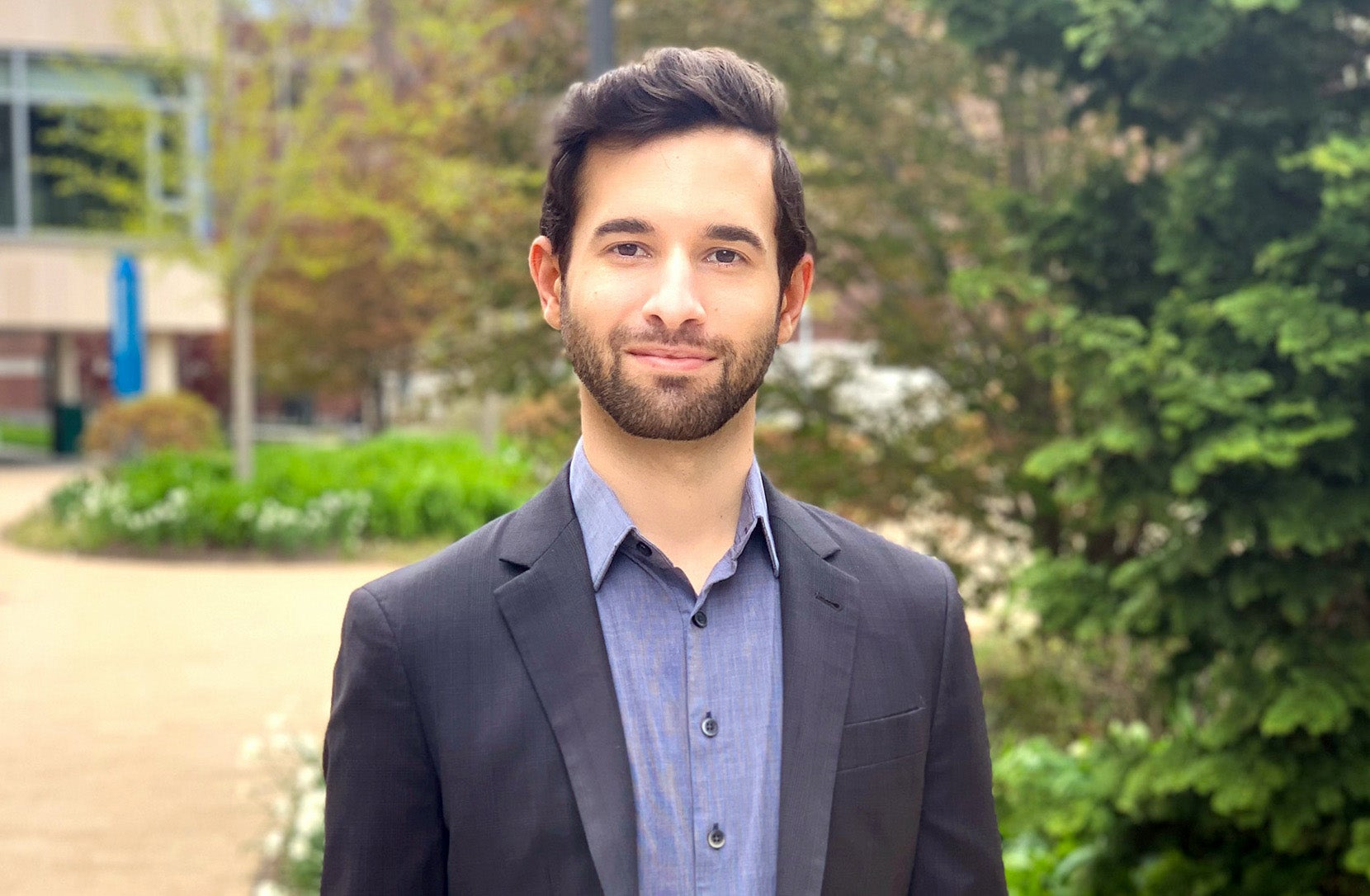People
John Goldberg
-
Campus Leadership in Transition
May 3, 2024
Professor John C.P. Goldberg is serving as interim dean while John F. Manning takes on the role of interim university provost.
-
On the 70th anniversary of Brown v. Board of Education, experts at Harvard Law School discussed the future of racial justice at the inaugural Belinda Sutton Symposium.
-
Andrew Crespo explores the origins of mass incarceration and how lawyers can fight back
March 27, 2024
At a lecture celebrating his appointment as the Morris Wasserstein Public Interest Professor of Law, Andrew Crespo outlined a path for lawyers and organizers to end mass incarceration.
-
Exploring ALI’s History and Influence
March 6, 2024
On the occasion of ALI’s anniversary, we brought together three of our project Reporters to talk about ALI’s history and a few of our most…
-
Harvard taps its law school dean as interim provost
March 4, 2024
Harvard University on Friday named the dean of its law school will assume the role of interim provost, serving as the college’s chief academic officer.
-
Harvard Law School Professors John C.P. Goldberg, Vicki C. Jackson, and Martha Minow have been recognized by the Association of American Law Schools (AALS) for their excellence in legal education.
-
On being a nuisance
March 28, 2023
At a lecture celebrating his appointment as the Carter Professor of General Jurisprudence, John Goldberg explores nuisance law and its implications for “today’s biggest litigation.”
-
Goldberg recognized for contributions to tort law, scholarship
February 2, 2023
John C.P. Goldberg was honored for his scholarship in the field of tort law as the recipient of the William L. Prosser Award, and the Civil Justice Scholarship Award.
-
Opinion: The most disturbing aspect of Vanessa Bryant’s case
September 15, 2022
CNN – An op-ed co-written by John C.P. Goldberg: Vanessa Bryant’s recent verdict against the Los Angeles County Sheriff’s and Fire Departments represents a federal…
-
Tragedy on Trial: Everything You Need to Know About Astroworld Lawsuits
November 12, 2021
Victims from Friday’s deadly disaster at Astroworld are now headed to court in droves, but what exactly will their attorneys need to prove in order to win their claims against Travis Scott, Live Nation and others? We asked top legal experts. ... That punk-rock persona was a big part of Scott's personal brand, but according to John Goldberg, a deputy dean at Harvard Law School who has written treatises on tort law, well-documented troubles with crowd control will help victims show that Live Nation and other organizers should have seen Friday coming. "If Astroworld was on notice that Scott's concerts tend to be more chaotic than other performers’ concerts," says Goldberg, "it would be required by negligence law to take the extra degree of danger or risk into account in deciding what sort of security measures to put into place."
-
Outrage Defense Stretches Texas Abortion Law Into New Territory
November 10, 2021
Even the staunchest conservative on the Supreme Court was taken aback when the Texas solicitor general said outraged feelings would be suitable grounds to sue doctors and others who violate the state’s ban on abortion after six weeks of pregnancy. ... Lawsuits brought under Texas’s abortion law, really have nothing to do with tort law, said John Goldberg, a Harvard law professor and expert in tort law and theory. “Getting an abortion that’s legal under Roe v. Wade is not, in the eyes of the law, mistreating a third person who is upset by the fact that you’re getting an abortion,” he said. So why did the Texas solicitor general make the comparison? Goldberg said Stone was trying to use tort of outrage as an analogy to convince the Supreme Court that it can’t block these lawsuits because they are being brought by private individuals, who are suing on their own behalf, not by people who are acting in concert with the state. Stone didn’t respond to requests for comment.
-
... Over three hours, lawyers representing abortion providers, the state of Texas, and the federal government volleyed with the nine justices over Texas’ Senate Bill 8, a law that effectively bans abortion after six weeks, before many people even know they are pregnant, with no exception for rape or incest. ...The “tort of outrage” is a real legal concept. In most states it’s known as “the intentional infliction of extreme emotional distress.” But legal experts familiar with the statute are skeptical of Stone’s argument. To satisfy the law, John Goldberg, a Harvard Law School professor and expert in tort law and theory, says that the behavior in question has to be not only both “extreme and outrageous,” but specifically “intended to cause severe emotional distress.” And, Goldberg adds, ”the intended victim” — the person suing under Texas’ law, in this scenario — “actually has to experience the severe distress.” There are two big problems with Stone’s logic, Goldberg explains. First, the Texas law is very clear that it doesn’t require an injury — anyone can sue under S.B. 8. But, he adds, if someone did sue for “outrage,” they would still have to prove that the person seeking the abortion caused them emotional distress “intentionally and through extreme and outrageous conduct.”
-
"Defund the police" became a rallying cry during Black Lives Matter protestsacross the U.S. and around the world in the summer of 2020, following the deaths of George Floyd, Breonna Taylor and others at the hands of police. But in the months since, how has the debate developed, and what does it mean for American communities? ... At its most basic, "defund the police" means reallocating money from policing to other agencies funded by local municipalities. Advocates are split on the question of how far it should go: whether to reduce funding and reform some aspects of policing, or completely abolish police forces as we know them...Many reform advocates argue police departments are overburdened, and that other agencies would be better equipped to deal with civil matters like mental health and homelessness. "I think at the core of the defunding movement is the idea that we want to take money out of city and local budgets that has traditionally been devoted to paying for police services, and to redirect it [to] better housing for low-income people, better schools, better mental health treatments," Harvard Law professor John Goldberg told CBSN Originals.
-
Dominion and Smartmatic have serious shot at victory in election disinformation suits, experts say
February 25, 2021
Dominion Voting Systems and Smartmatic USA have a good shot at winning their billion-dollar defamation suits against a host of conservative personalities and, in the case of Smartmatic, Fox News, but they still have a lot to prove in court, experts say. Each of the two election technology firms has sued several boosters of former President Donald Trump, saying that they worked to spread conspiracy theories about each company’s products in order to cast doubt on President Joe Biden’s electoral victory...The lawsuits against Giuliani and Powell are likely to be more straightforward than the case against Fox News and its hosts, according to Harvard Law School professor John Goldberg, an expert on defamation. “I think with respect to Giuliani and Powell, there is pretty good evidence that will allow a jury to find actual malice by those defendants,” Goldberg said. “For example, Dominion has pointed out in its complaint that Giuliani, in his public statements out of court, was routinely talking about fraud, but every time he was in court and was under oath, so to speak, he said, ‘No, we are not alleging fraud, Your Honor.’” “They have a shot against Fox News and the Fox personalities, but it’s a little harder,” Goldberg said.
-
Disinformation on trial
February 17, 2021
Tort law expert and Harvard Law Professor John C.P. Goldberg explains what election technology companies Smartmatic and Dominion Voting Systems must do to prove their claims of defamation against former former Trump allies, how likely they are to succeed, and whether these types of lawsuits might have an impact in the fight against disinformation.
-
No Special Duty
October 5, 2020
What are the police for? Producer B.A. Parker started wondering this back in June, as Black Lives Matter protests and calls to “defund the police” ramped up. The question led her to a wild story of a stabbing on a New York City subway train, and the realization that, according to the law, the police don’t always have to protect us. Producer Sarah Qari joins Parker to dig into the legal background, which takes her all the way up to the Supreme Court... and then all the way back down to on-duty officers themselves. Featuring Harvard Law professor John Goldberg.
-
An article by I. Bennett Capers, John C.P. Goldberg and Benjamin C. Zipursky: Police officers enjoy almost complete immunity from civil suits in federal court. They can shoot someone, taser someone, choke someone, or press their knee into someone’s neck until they can’t breathe. They can brutalize peaceful protesters. And yet, in large part because of the court-made rule of qualified immunity, officers rarely face liability. The calls for ending qualified immunity have not gone unheard. The House of Representatives passed a bill that would eliminate it and enable victims to obtain remedies for violations of their civil rights. But Senate Majority Leader Mitch McConnell (R-Ky.) and the Senate have balked at this change, as has President Trump. Likewise, the Supreme Court recently declined to revisit the subject. The good news is that changing federal law is not the only way to erase the grave accountability deficit for unlawful police violence. There’s an alternative hiding in plain sight: state law. While no state can change federal law, each state has the authority to change its own rules. State tort law has long empowered individuals who have been choked, shot or maimed to sue the person who victimized them. And, while the states have their own sorry track record when it comes to police accountability, it is the prerogative of state lawmakers — not the federal government — to change rules of state law that stand in the way of imposing legal responsibility for police violence. There are already some hints of progress at the state level.
-
João Marinotti ’20 wants to know how the world works
May 27, 2020
“I’ve always had a passion for engaging in my curiosity,” says João Marinotti ‘20, a linguist turned lawyer whose work focuses on sustainability, business, property, and private law.


